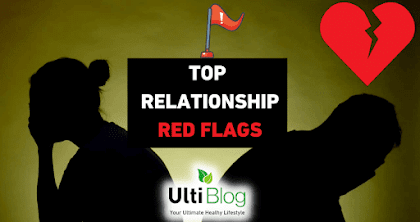Social Media Addiction: Recognizing the Signs and How to Overcome It
Social media apps can help us talk to people from all around the world. Using it constantly during the day can be unhealthy. This is called addiction.
In this blog post, we will learn how to tell if you are addicted to social networking sites and how to treat it.
What is a social media addiction?
Social media addiction is when someone becomes obsessed with using social media platforms such as Facebook, Instagram, Twitter, and YouTube.
People who have social media accounts will spend hours scrolling through their favorite social media sites, looking at feeds, or posting updates instead of focusing on real-life activities. This is more common in young adults and teens.
Why is social media so addictive?
Social media is so addictive because it taps into our brain's reward system, like our need for instant gratification and connection. In addition, the comments and likes people receive when they post something can be a source of validation. This encourages you to keep posting in an effort to get more attention.
How does a social media addiction have a negative impact on you?
Mental health
- Can make you anxious or depressed
- Low self-esteem can happen when you think that others on social media have a better life than you do
- Decreased productivity
- Poor relationships
- You're likely to develop a fear of missing out
- Isolation
- You're likely to develop a social anxiety disorder
Physical health
- It can mess up your sleeping patterns
- Eye strain
- Headaches
- Poor posture
- Reduced physical activity
Signs of social media addiction
- Losing track of time
- Ignoring real-life relationships
- Becoming irritable when away from your phone
- Feeling the need to constantly check notifications
- Having difficulty concentrating on tasks
- Neglecting other activities
- Becoming anxious when not connected to social media
- Spending increasing amounts of time online
- Feeling the need to be “liked”
- Lying about the amount of time spent online
- Becoming easily distracted
- Becoming hostile when asked to stop
- Obsessing over likes and views
- Feeling depressed when you don’t get enough “likes”
- Developing a fear of missing out (FOMO) on what friends are doing online
Treatments options for a social media addiction
Therapy
- Cognitive-behavioral therapy (CBT) helps people recognize thoughts that make them to overuse social media.
- Dialectical behavior therapy (DBT) is a kind of therapy that can help people learn how to be more aware and better control their emotions.
- Group therapy is when a group of social network users meet up and talk about their experiences with their problematic social media use.
- Family therapy can help people understand why they overuse social media.
Medications
- Antidepressants help them if they have both depression or anxiety and a problem with using social media excessively.
- Mood stabilizers are given to people with bipolar disorder or other mental health problems that can lead to social media overuse.
Self-care strategies
- Limit your social media usage or remove social media from your phone
- Turn your phone off during family time, meals, or work (you can also install an app that only allows phone calls)
- Practice mindfulness
- Start engaging in a hobby that doesn't involve tech
- Exercise
- Spend time with friends and family
Conclusion
Video game addiction is bad for your mind and body. Make sure to set limits and spend time with friends and family instead of playing too much. Ask someone for help if you need it so that you can have a better balance in life.
FAQ
u003cstrongu003eWhat should I do if my child is addicted to social media?u003c/strongu003e
Talk to your child about their use of social media and help them develop strategies for limiting their usage. It may also be helpful to find activities that engage them in offline activities, and seek professional help from a mental health provider if needed.
u003cstrongu003eu003cstrongu003eWhat are some healthy alternatives to using social media?u003c/strongu003eu003c/strongu003e
There are many healthy alternatives instead of using social media, such as engaging in hobbies, reading books or magazines, practicing mindfulness exercises, exercising, or spending time with friends and family. It is important to find activities that do not involve tech if you want to break away from the computer screen.
References
- University of Tennessee: Social Media Addiction and its Implications for Communication
- Recovered: Social Media Addiction
- Social Media Addiction and the Loneliness Epidemic
- UoN: Impact of Social Media on Youth Mental Health: Statistics, Tips & Resources
- Walden University: Signs of Unhealthy Social Media Habits Mental Health Practitioners Should Spot
- Academia: Life satisfaction: A key to managing internet & social media addiction
- University of North Carolina: Kicking Social Media Addiction
- Drugs: Antidepressants
- Medical News Today: What to know about mood stabilizers?
- King University Online: How to Combat the Negative Effects of Social Media
https://bit.ly/3F5LMI7

Comments
Post a Comment